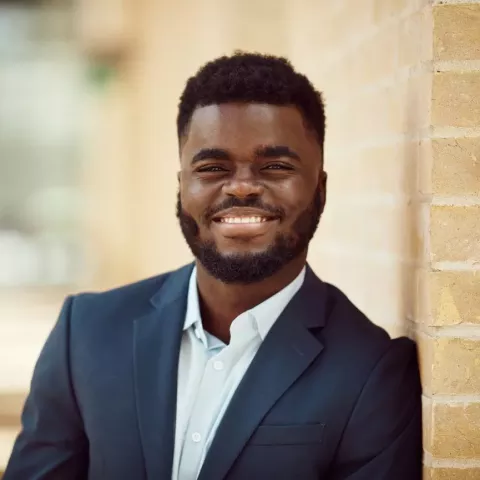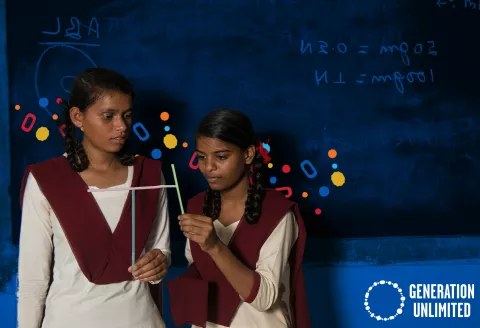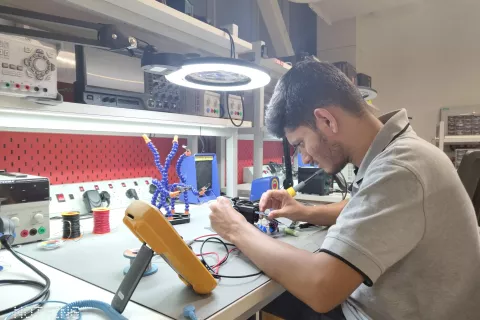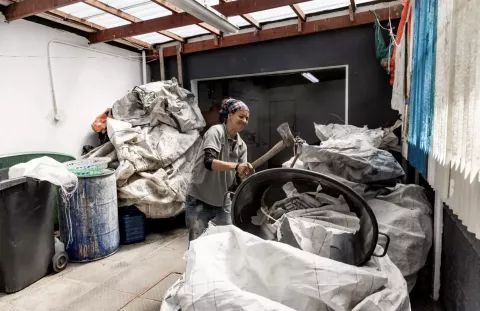The fate of millions of forgotten children in the face of a pandemic
What do the impacts of COVID-19 mean for children living on the streets and how can we act differently?
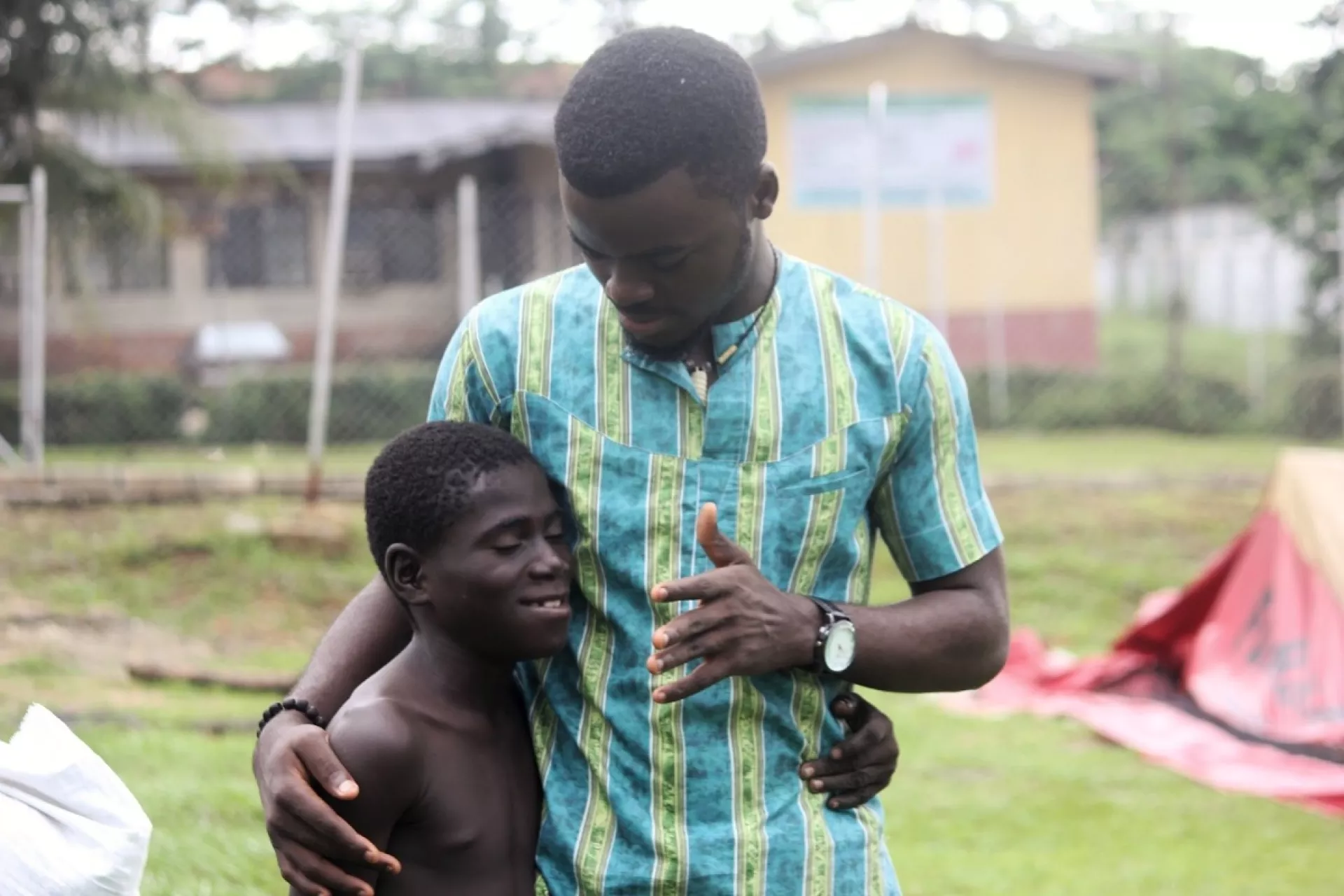
By James Okina and Ofem Ubi
I spent the evening of 6 March with five brilliant boys on the streets of Rio de Janeiro, Brazil. I was documenting their life with my team on a project called No Existe, a partnership between my organization, Street Priests Inc., and Bleed Red Campaign, to bring awareness to the problem of street children across the Americas. We ended that evening having dinner with the kids, and as we were eating, Vagene, one of the kids exclaimed, "This is the kind of Rio I want!"
I knew exactly what he meant. He was truly happy and fulfilled. He felt seen, heard and full, an experience that was rare for him. As a matter of fact, we found him with a deep cut on his foot that he got when someone accused him of theft and cut him with glass.
The world has been placed on temporary hiatus due to what was declared a pandemic by the World Health Organization (WHO), with lockdown orders from governments and stringent measures made for enforcement. Social gatherings across the globe have been minimized or canceled completely. Bustling and vibrant cities are now echoing empty streets. An unbelievable number of casualties is reported daily by news outlets, showing the ravaging impact of COVID-19.
With all that is being done to curtail the impact of COVID-19, a rather important but ignored group of human beings is being unwittingly kicked out of the safety plan. The children who live on the streets of urban cities around the world. These are children whose living conditions and daily experiences are less than humane. With little to no provision offered them, neglect, discrimination, bullying and starvation will intensify, especially at this time.
I wonder what kind of Rio De Janeiro Vagene is currently experiencing at this time, and you should too. Vagene’s access to healthcare and other basic amenities has shrunk from whatever was available to nothing. Long before this pandemic, we had already distanced ourselves socially from these kids, sanitized our hearts of care and masked our concerns. We shouldn’t wait for a crisis to ensue before we care but we are here now and these children are twice as vulnerable to ill health, violence and discrimination, and are always left as collateral damage. Vagene was not in the mainstream conversation then and he is not now.
People are largely scared and many are taking all possible measures to be safe by staying at home, washing hands frequently, testing and more, but children on the streets are the most vulnerable because they are aliens to these safety measures and are left to the mercy of the virus.
Yes, COVID-19 does not discriminate, but our systems do: what does “stay at home” mean for children who call the streets home? What does social distancing mean for children who have to rely on nothing but the body heat of each other to survive long, unforgiving nights in the cold?
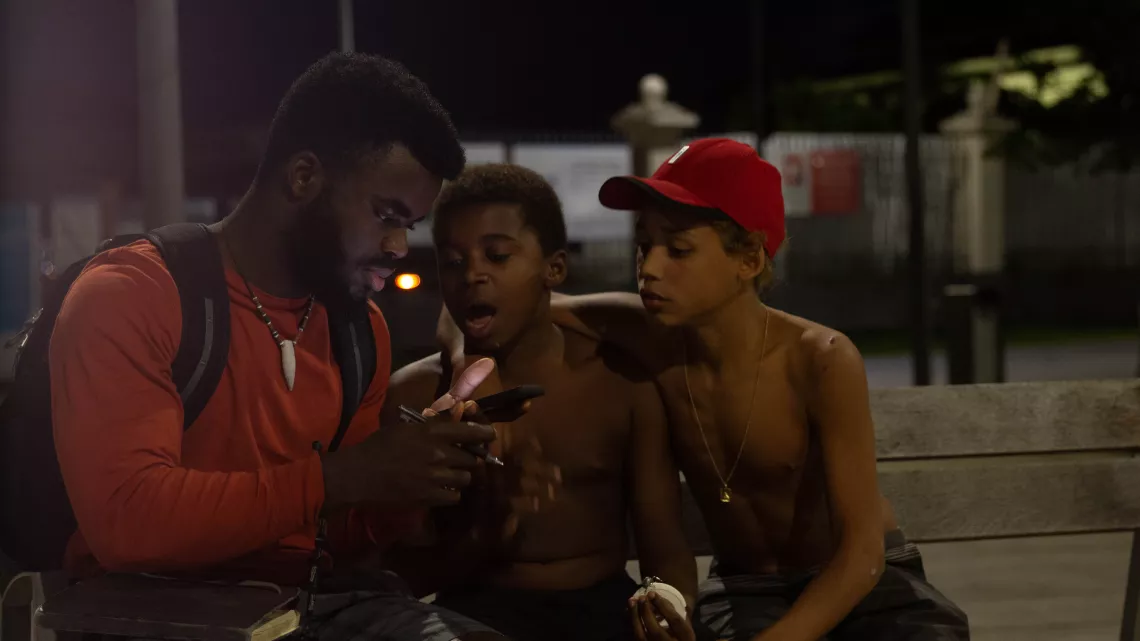
At age 15, I was frustrated by constantly being told that it was up to the government or the church to do something about this problem, so I founded Street Priests Inc., a youth-led organization with the vision to transform the lives of street children. We reunite the forgotten children in our communities back with their families, ensuring a better future for them through our programmes and the mentorship of our league of revolutionaries.
Street Priests Inc. has been running for over five years, with a track record of effective programming and documented success. We operate a community centre that brings us into constant contact with our children, enabling us to multiply our impact and measure growth through the curriculum we implement. This is a haven and a safe space, where the children can learn, eat, be children and have their lives structured and shaped for the very best in the city of Calabar, Nigeria.
In the wake of COVID-19, we had to close the center to the children and volunteers in compliance with the State Government’s directive. This was a hard decision but one that needed to be taken. Nonetheless, we decided to reach out to children every day across the city with the resolve to supply them with meals and safety kits throughout this period thanks to our partner SAP, while sensitizing them to recent global occurrences connected to the pandemic. The children are also learning how to stay safe until our streets are back to normalcy and we are all able to gather again.
As an advocate for young people, specifically in my role as a Young People’s Action Team Member with Generation Unlimited. I ask all institutions – local and global – to review their policies, restructure their plans and ensure inclusion of street children all over the world, especially now by following this simple recommendation by the Consortium for Street Children. No child is safe until all children are safe. I am also asking all Generation Unlimited partners to review their plans for connectivity, access to education, digital learning and online skilling to be truly inclusive – that is to also serve the most vulnerable children: children in refugee camps, street children etc. I believe that only then can we truly claim success.
Now millions of children on the streets around the world may sound like an insurmountable challenge, but if we would all look out for one Vagene, we would have reduced this challenge to nothing.
Here are three things you can do today:
· Lend your voice to this cause
· Commit your resources to local organizations that serve street children
· Call on your community to be kind, considerate and treat children with dignity and respect
I hope Vagene can at least find a home in your heart.
I believe we all want the same thing, for every young person to reach their full potential. Are you going to play your part?

